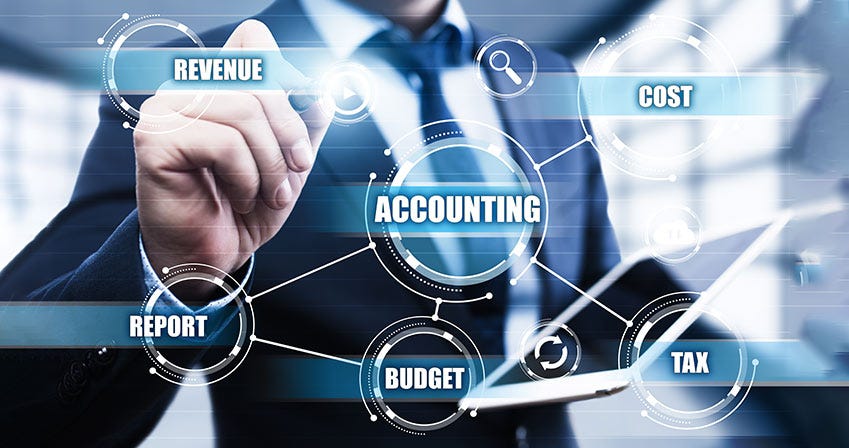Transform Your Accounting Skills In the ever-evolving landscape of finance and business, the ability to adapt and grow is paramount. As an accountant, your Transform Your Accounting Skills is not just a professional necessity but a pathway to personal and organizational success. It’s the means by which you Transform Your Accounting Skills and embark on an Transform Your Accounting Skills that can transform your career. This article serves as a comprehensive guide to help you achieve Transform Your Accounting Skills and unlock the full potential of your accounting prowess.
The Changing Face of Accounting
Accounting, once seen as a primarily technical and rule-based profession, has evolved into a dynamic field that demands a broader skill set. While the foundational knowledge of accounting principles remains essential, today’s accountants must also be strategic thinkers, technologically proficient, and adept communicators.
The Role of Technology
Advancements in technology have significantly altered the accounting landscape. Accounting software, data analytics, and automation tools have become integral to the profession. Accounting Skills Upgrade now includes proficiency in these digital tools to streamline financial processes and generate real-time insights.
Strategic Thinking
Accountants are no longer limited to crunching numbers; they are expected to provide strategic financial guidance. This requires the ability to analyze financial data in the context of broader business objectives and make recommendations to drive growth and profitability.
Effective Communication
Accountants must be skilled communicators who can convey complex financial information to non-financial stakeholders. Whether it’s presenting financial reports to executives or explaining tax implications to clients, effective communication is a critical skill.
The Accounting Skills Upgrade
Embarking on the journey of Accounting Mastery begins with an intentional Accounting Skills Upgrade. It involves acquiring and honing the skills necessary to excel in modern accounting. Here are some key areas to focus on:
1. Financial Analysis
Enhancing Financial Expertise starts with a deep understanding of financial statements. Accountants should be able to interpret balance sheets, income statements, and cash flow statements to uncover insights about an organization’s financial health. Mastery of financial analysis involves the calculation and interpretation of key financial ratios, such as the current ratio, return on equity (ROE), and net profit margin.
2. Accounting Software Proficiency
Modern accounting relies heavily on software tools. Proficiency in accounting software, such as QuickBooks, Xero, or industry-specific applications, is essential. These tools automate data entry, simplify financial reporting, and enhance accuracy. An Accounting Skills Upgrade should encompass familiarity with these platforms.
3. Data Analytics
The era of big data has transformed accounting. Accountants should be able to harness data analytics to identify trends, anomalies, and opportunities. Data visualization tools and techniques help accountants present data in a compelling and understandable way.
4. Tax Planning and Compliance
Tax laws are complex and ever-changing. Accountants need to stay updated on tax regulations and optimize tax strategies for individuals and businesses. Tax planning involves minimizing tax liabilities while ensuring compliance with the law.
5. Management Accounting
Management accountants play a crucial role in decision support. They provide data-driven insights to guide the allocation of resources, cost control, and budgeting. Accounting Skills Upgrade in this area involves understanding cost accounting, activity-based costing, and budgeting.
6. Soft Skills
Effective communication, critical thinking, problem-solving, and adaptability are vital soft skills for accountants. These skills enable accountants to work collaboratively, solve complex financial challenges, and adapt to changing business environments.
7. Continuous Learning
The journey of Accounting Mastery is ongoing. Continuous learning is essential to stay current with industry trends, regulations, and emerging technologies. Professional organizations, such as the American Institute of Certified Public Accountants (AICPA) and the Institute of Management Accountants (IMA), offer resources and opportunities for ongoing education.
Mapping Your Skill Transformation
Transforming your accounting skills is a systematic process. Consider the following steps to map your journey:
1. Self-Assessment
Begin by assessing your current skill set. What are your strengths and weaknesses? What areas of accounting do you enjoy the most? Identifying your starting point will help you set clear goals for improvement.
2. Define Your Goals
What do you want to achieve with your Accounting Skills Upgrade? Are you aiming for a promotion, looking to specialize in a particular area, or planning to start your own accounting practice? Define your goals to tailor your skill development accordingly.
3. Training and Education
Invest in formal education, if necessary, to acquire new skills or deepen your existing knowledge. Consider pursuing advanced degrees, certifications, or online courses that align with your goals. For instance, the Certified Public Accountant (CPA) designation is highly regarded in the field.
4. Practical Experience
Learning by doing is invaluable. Seek opportunities to apply your newly acquired skills in real-world situations. This might involve taking on new responsibilities at your current job, volunteering for challenging projects, or internships.
5. Networking
Connect with other professionals in the field. Attend industry events, join accounting associations, and engage in online communities. Networking can provide mentorship, support, and valuable insights into the accounting profession.
6. Stay Informed
Stay current with the latest developments in accounting, finance, and technology. Subscribe to industry publications, follow thought leaders on social media, and participate in webinars and conferences.
7. Set Milestones
Break down your skill development into manageable milestones. Track your progress and celebrate your achievements along the way. Setting milestones provides a sense of accomplishment and motivation.
The Power of Skill Transformation
A transformed set of accounting skills can open doors to diverse career opportunities. Here’s how Skill Transformation can benefit you:
1. Career Advancement
Enhanced skills make you a more valuable asset to your organization. You become eligible for more significant roles, increased responsibilities, and higher compensation.
2. Specialization
Accounting Skills Upgrade can enable you to specialize in areas such as forensic accounting, tax planning, or financial consulting. Specialization can lead to a niche career path with unique opportunities.
3. Entrepreneurship
With a robust skill set, you can consider starting your own accounting practice or consultancy. You’ll be equipped to serve a variety of clients, from small businesses to individuals.
4. Influence and Impact
As a skilled accountant, you can contribute to informed decision-making within organizations. Your insights can drive financial efficiency, growth, and sustainability.
5. Job Security
In a competitive job market, a diversified skill set sets you apart from other candidates. It enhances your job security by making you adaptable and valuable to employers.
Period: Transform Your Accounting Skills
The transformation of your accounting skills is a journey, not a destination. It’s a path of growth, exploration, and continuous learning. As you embark on your Accounting Mastery Journey, remember that your skills are a powerful tool that can shape your career and impact the organizations you serve.
With a commitment to Transform Your Accounting Skills and a dedication to Transform Your Accounting Skills, you can navigate the evolving landscape of finance with confidence and contribute to the success of businesses and individuals. Your skill transformation is a testament to your dedication to excellence in the field of accounting.




:max_bytes(150000):strip_icc()/Empower-logo-70737c35a18245368a4cae8315fe799e.jpg)
